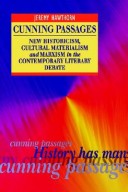Interrogating Texts S.
1 total work
Many literary theories have treated literary works as if they were timeless, untouched by the eras in which they were written or in which they were read. In the past decade such attitudes have been countered by those who see both writing and reading as inescapably moulded and informed by historical circumstance. This work looks at the various theoretical components of, and contributions to, this "turn to history" - new historicism, cultural materialism and Marxism - and at their productive engagement with varieties of formalism and textualism. This study explores the implications such debates have on attempts to understand both reports of historical events, such as Hiroshima or the Nazi holocaust, and also fictional and poetic works whose relation to historical actuality is more complex and indirect. The book interrogates a range of other texts from, primarily, the period of high modernization, in the light of these theoretical debates. The texts include W.H. Auden's "Spain", Virginia Woolf's "Between the Acts", Henry James's "The Turn of the Screw", and a separate chapter is devoted to the literature surrounding the Titanic disaster.
The work attempts to show how the "cunning passages" written by novelists and poets arise out of, and grapple with, the "cunning passages" of history itself. Such a demonstration, it argues, does not reduce the value of literary works, but rather allows us to appreciate their full richness and complexity.
The work attempts to show how the "cunning passages" written by novelists and poets arise out of, and grapple with, the "cunning passages" of history itself. Such a demonstration, it argues, does not reduce the value of literary works, but rather allows us to appreciate their full richness and complexity.
